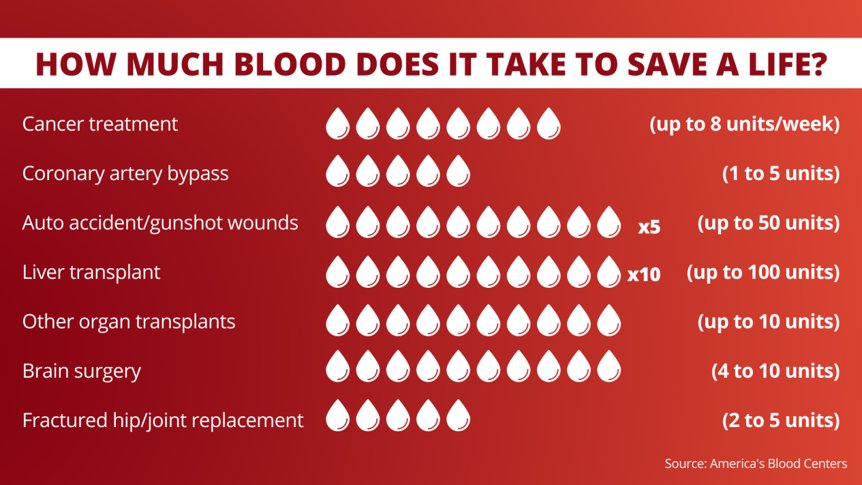Blood banks are facing a blood shortage
Livestream blood bank supplies blood for more than 80 Southern California hospitals and right now they are suffering from a lack of Blood supply. They are calling it a Blood Crisis. In a recent press release Medical Director, Dr. Rick Axelrod says, “We are now measuring our inventory in hours, not days,”.

According to the U.S. Department of Health and Human Services (2020), "The national blood usage rate of decline tapered significantly in the past two years, yet the reduced donor base trend continued its ten-year rate of about 3 percent loss annually, resulting in blood shortages, particularly in summer months when donor availability typically wanes. This heightened pressure has required blood centers to invest heavily in donor recruitment costs to stabilize a fragile donor base.
For reference, visit the U.S. Department of Health and Human Services; pdf.
The photo below describes the shrinking donor base by age.

In the document, the U.S. Dept. of Health and Human Services states "The COVID-19 pandemic focused attention on the strengths and weaknesses of the U.S. blood system. The system responded rapidly, robustly, and reliably to the dramatic swings in the blood supply, from shortages to surpluses to shortages. It adapted to the dramatic redirection of venues for blood collection, from mobile blood drives to fixed-site locations.
On the other hand, the pandemic exposed weaknesses that require remediation in order to
address current needs and respond to future public health emergencies. These
vulnerabilities include the following:
• Lack of current, real-time data for decision-making.
• Uncertainty about modern business models for blood centers and appropriate
remuneration for their services.
• Gaps in understanding of blood donor motivation to ensure adequate blood donations
from current and future generations of blood donors.
• Barriers and an uncertain environment that stifles innovation and new technology
adaptation.
• Ambiguity about the role of cost/benefit analyses in decision-making without
compromising safety.
Also seen in the 2020 report, "Donors of racial and ethnic minority populations are more likely to be a match for people with sickle cell disease and other blood disorders. Many of these patients are
dependent upon transfusions over the course of their lifetimes and require precisely matched
blood components".
If you would like to give blood, call this number to set up an appointment. 1-800-879-4484 or visit LStream.org.
